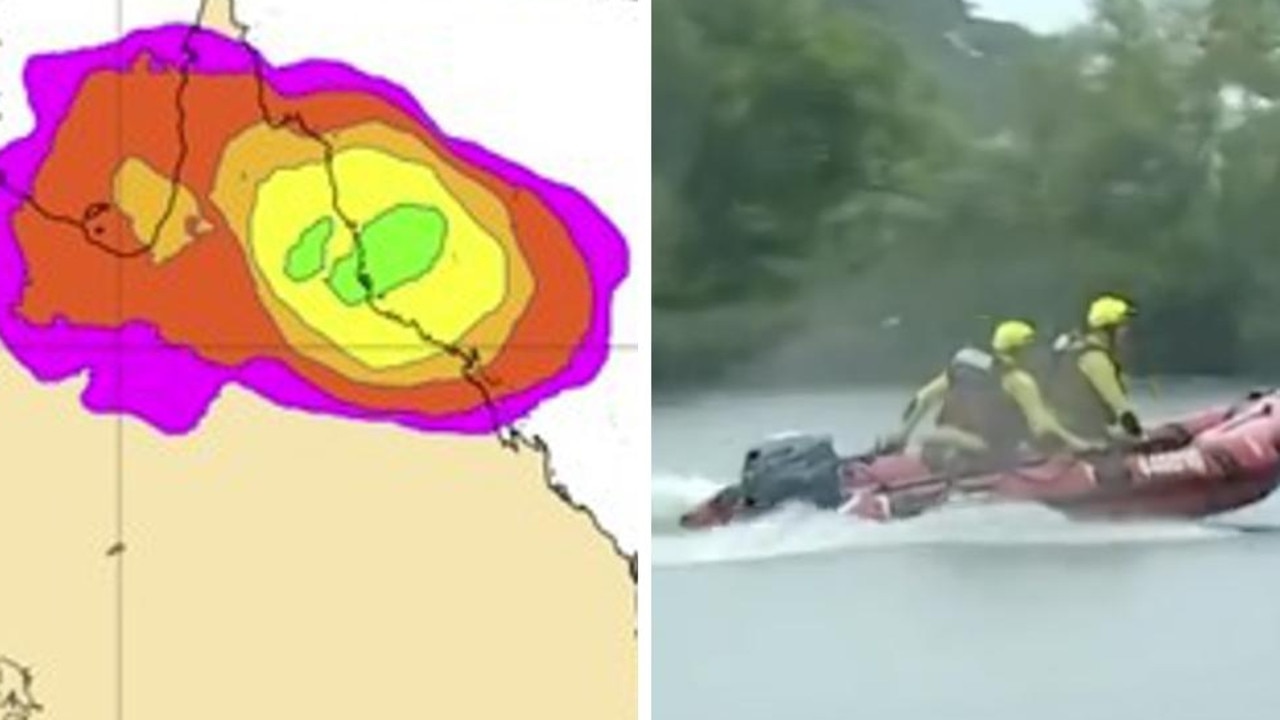Hypersonic missiles, cyber warfare systems: What’s coming for the Australian military
New military hardware, including hypersonic missiles, will be rolled out before the AUKUS subs arrive in a bid to boost Aussie defences.
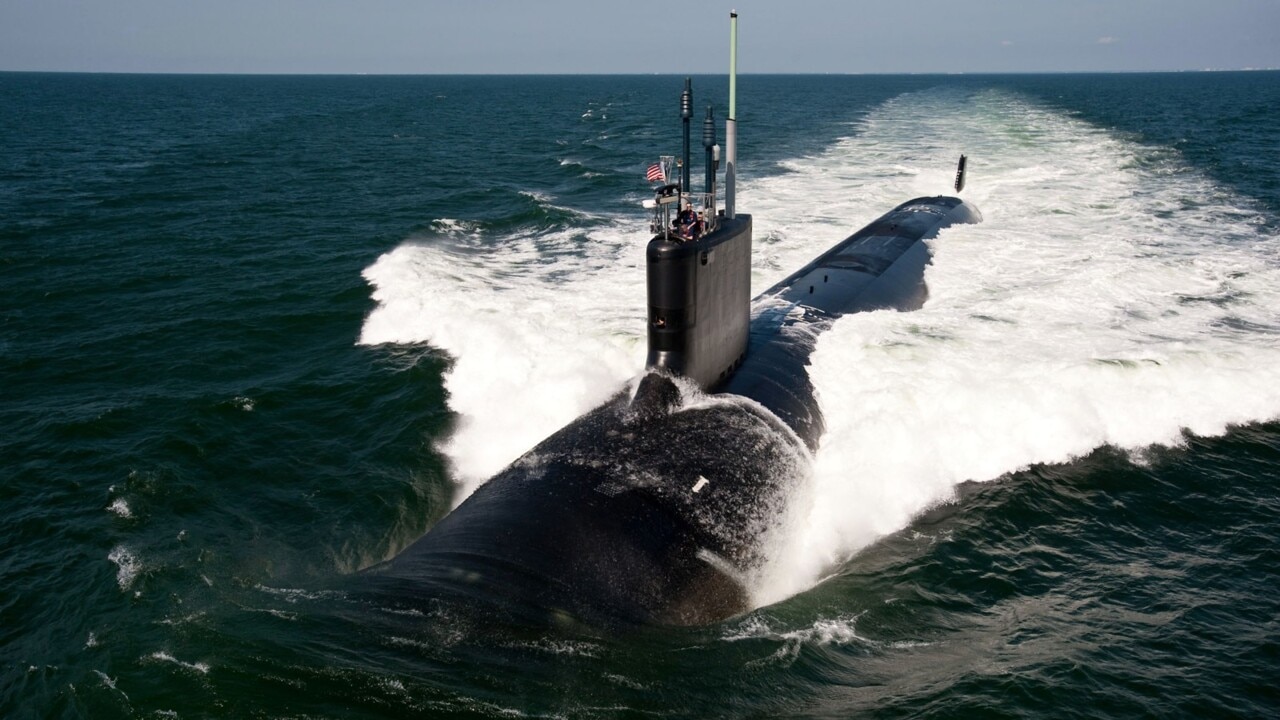
National
Don't miss out on the headlines from National. Followed categories will be added to My News.
Exclusive: Off-the-shelf technology including hypersonic missiles, autonomous undersea vehicles and cyber warfare systems will be fast-tracked to sharpen Australia’s defences before our nuclear submarines hit the water.
Under the multistage submarine plan, to be unveiled on Tuesday in San Diego, Australia’s first nuclear boats will be US Virginia-class submarines that are tipped to arrive after 2030.
Australia’s US ambassador Arthur Sinodinos said this meant the AUKUS partners were now planning to launch a major search for “near-term” defence upgrades in what US President Joe Biden has dubbed the “decisive decade” in combating the rise of China.
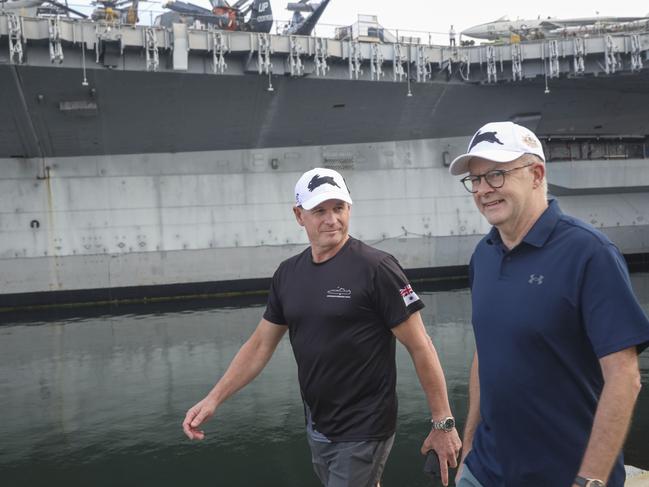
In an exclusive interview, Mr Sinodinos also said one of the major challenges facing his replacement Kevin Rudd – who starts next week – was ensuring AUKUS and the US’s other Indo-Pacific partnerships would “outlast administrations of different political stripes”, including the potential return of Donald Trump in 2024.
The ambassador, who was Malcolm Turnbull’s industry Minister, described AUKUS as Australia’s “moonshot”.
Watch Tom Minear’s explainer video below:
In an exclusive interview, Australia’s US ambassador sets the scene for the San Diego AUKUS announcement, detailing how Australia’s defences will be sharpened before our nuclear subs arrive and what risks must be overcome for the “moonshot†to succeed. https://t.co/DpIdHwDQvzpic.twitter.com/h3hIfRs1pH
— Tom Minear (@tminear) March 13, 2023
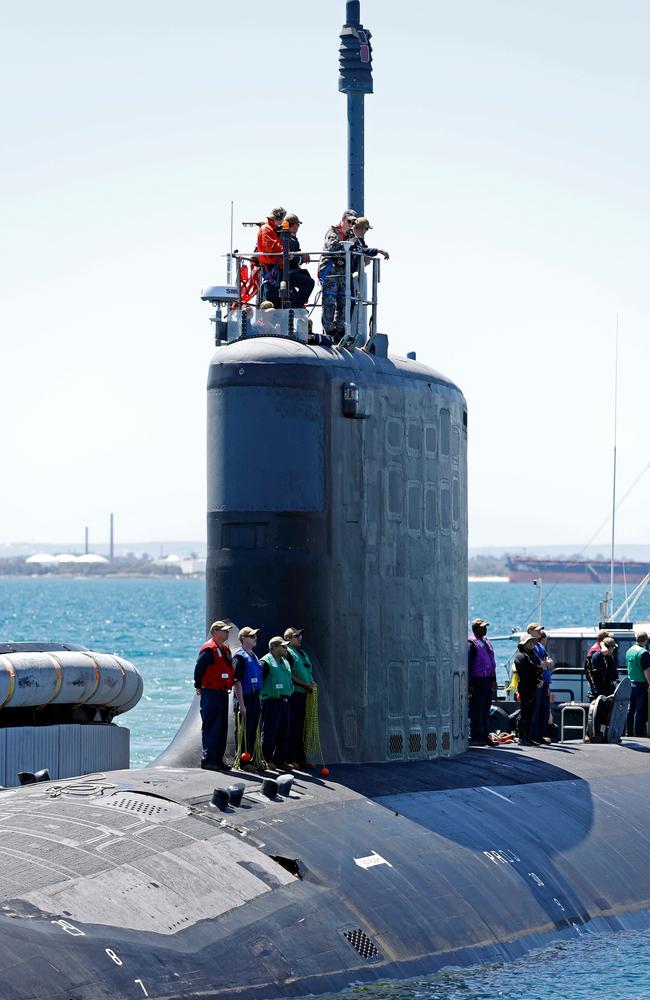
But he said Prime Minister Anthony Albanese’s announcement on Tuesday with Mr Biden and UK Prime Minister Rishi Sunak was only “the end of the beginning”.
“The challenge now is as a nation to put the shoulder to the wheel and get this done,” he told News Corp in San Diego.
“Failure is not an option. This is a multi-decadal commitment.”
While nuclear submarines are the first pillar of the AUKUS pact, the second involves other defence capabilities which Mr Sinodinossaid would be developed between Australia, the US and the UK under overhauled technology-sharing rules.
He said work was already underway behind the scenes on potential cooperation on technologies including hypersonics and counter-hypersonics,artificial intelligence, cyber warfare and unmanned undersea alternatives to submarines.
He said the war in Ukraine had accelerated innovation in asymmetric warfare.
“Once the announcement is made this week, there will be a process of industry engagement which – at least in my view – should be a good way to flush low-hanging fruit of proposals from the private sector for off-the-shelf solutions to various issues,” Mr Sinodinos said.
“The countries that will do well in the future are the countries that capitalise on critical and emerging technologies as a basis for new industries.”
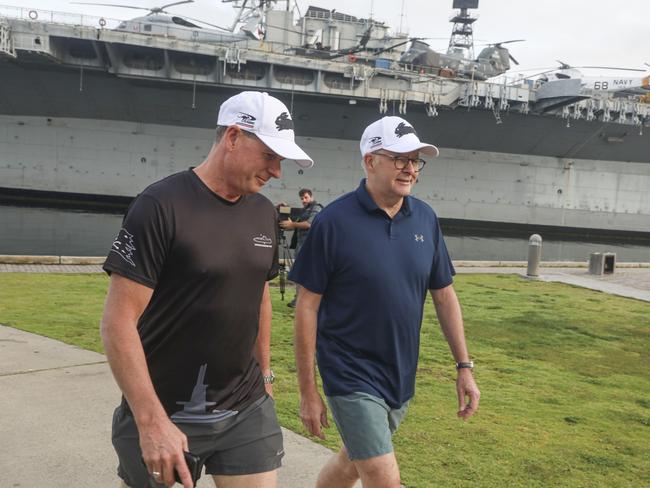
Mr Sinodinos said he was confident doubts among some US congressmen and Navy chiefs about selling nuclear submarines to Australia would not impact AUKUS, saying there was “a very strong consensus that America must work with its allies to create the conditions for a peaceful and prosperous Indo-Pacific”.
Asked whether that could be at risk if Mr Trump won next year’s presidential election, Mr Sinodinos said: “One of the challenges we face here in Washington as representatives of Australia is to help encourage the institutionalisation of the various initiatives the US is taking in the Indo-Pacific.”
He said maintaining continuity would be important not just with AUKUS, but in leader-level co-operation in the Quad – involving Australia, the US, Japan and India – and the Partners in the Blue Pacific initiative.
Mr Sinodinos’s three-year posting in Washington DC ends this week before Mr Rudd takes over.
ALBO JOINS SUNAK FOR SURPRISE SUPPER
The Australian and British prime ministers sparred over their chances at this year’s FIFA Women’s World Cup as they shared supper the night before the AUKUS announcement.
Surprising diners at a seafood restaurant in San Diego, Anthony Albanese and Rishi Sunak thanked each other for getting Australia’s nuclear submarine plan over the line.
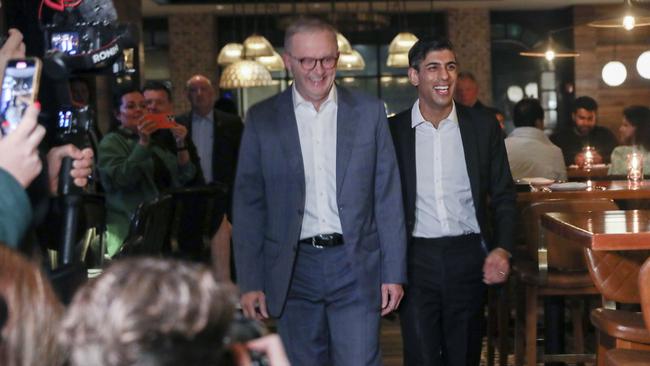
Mr Albanese said he had been briefing leaders in the Indo-Pacific region before the big reveal on Tuesday, and that the move had been “well received and understood”.
“AUKUS has been a lot of hard work but it is in the three countries’ interests,” he told Mr Sunak.
“The sum of three is more than one plus one plus one in this case … This is an investment in our capability, but at the same time of course we’re investing in our relationships.”
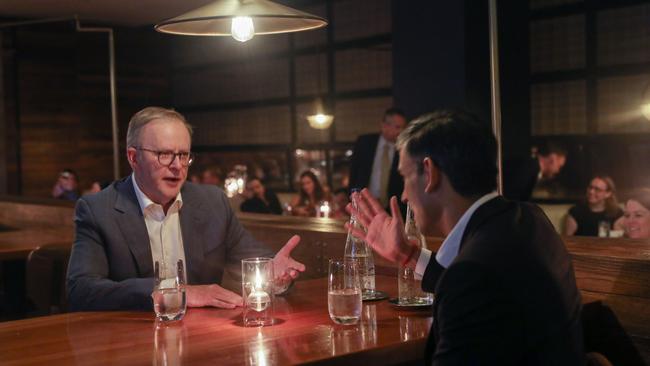
Mr Sunak, the third British prime minister since the AUKUS pact was unveiled 18 months ago, said it was an “important day for UK-Australia relations”.
“It’s about our commitment to the Pacific region, which even though it’s geographically a long way from where we are, it’s important in a way to demonstrate the values that we both hold dear as countries,” he said.
But Mr Sunak could not resist saying he hoped the English Lionesses would raise the World Cup trophy when the tournament is played in Australia and New Zealand later this year.
“We’ll see about that,” Mr Albanese replied.
More Coverage
Originally published as Hypersonic missiles, cyber warfare systems: What’s coming for the Australian military





